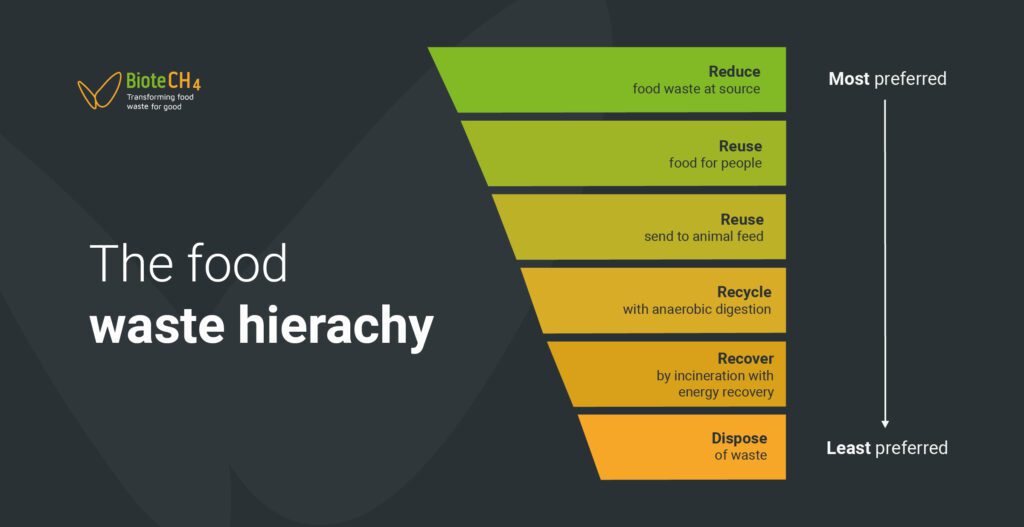Food Waste Myths: Fighting the Misconceptions
- Local Authorities
- -
Changing the way residents think about waste management is a constant challenge that calls for commitment from local authorities across the country.
At BioteCH4 we’re always looking towards a sustainable future, and one thing remains true no matter which lens we’re using; education and information will always be at the foundation of creating that future.
Key Points
- Education and information will always be at the foundation of creating a sustainable future.
- It is vital for Local Authorities to encourage good behaviours and consistent change with residents is key.
- Debunking common food waste myths ensures decision-making is properly informed among local authorities and residents alike.
Changing the way residents think
Approaching residents with education in mind means not only informing them about the environmental benefits of anaerobic digestion but also instilling a deeper understanding of their own role in shaping a greener, more sustainable community. Because one of the biggest myths of all is that ‘one person can’t make a difference’.
Positive change will always start with knowledge; it’s so important to know what’s true when there are so many common misconceptions out there; especially surrounding food waste!
Working with Local Authorities
We had the pleasure of hosting a number of local authorities on behalf of the Anaerobic Digestion and Biogas Association (ADBA), and our biggest takeaway from those meetings was that local authority officers and members need to talk to Anaerobic Digestion (AD) operators before any procurement. In local government, there is a really strong push to introduce food waste collections, but the pace of change is being hampered by an ongoing lack of clarity from central government.
There are many myths associated with food waste, and our team can help debunk those myths and find you the right partner who understands the nuances of what you need and what works for your demographic.
Busting Food Waste Myths
Untrue
Homes create the majority of food waste. For example, in the UK, we generate roughly 10 million tonnes of food waste annually, 6 million of which come from homes.
Untrue
Studies show that food waste accounts for a third of all greenhouse gas emissions that humans create; that’s a huge carbon footprint! Food that is thrown away rots, which emits methane - we could save the equivalent of eight meals per household each week if we stopped throwing food away.
Untrue
Harmful gases that contribute to climate change are released if food waste is thrown away in your general rubbish bin and ultimately ends up in landfill. This is why services like ours exist. According to Love Food, Hate Waste, recycling our food waste properly could lead to households saving a whopping 8 meals a week. When food waste is collected via a food recycling service, it is taken to a processing plant, where it can be transformed into biogas and/or fertiliser.
Untrue
While composting keeps food waste out of landfills, the energy engrained in the food cannot be captured. Better options exist - Anaerobic digestion creates biogas for renewable energy. New technologies even convert waste directly into sustainable fuels.
Untrue
Confusion around date labels leads to only about 20% of discarded food. Wasting edible food due to misunderstood dates is still an issue, but excess purchases and improper storage cause more waste.
Untrue
Contrary to popular belief, waste is not an unavoidable consequence. Anaerobic digestion provides a viable solution to convert organic waste into valuable resources, minimising the environmental impact. Did you know that there is a Food Waste Hierarchy? This framework outlines the five steps for dealing with waste, ranking them according to their environmental impact, and is designed to make it easier for businesses to prioritise their food waste recycling.

Untrue
Every resident's role in waste management is crucial. Educating individuals on the impact of their choices empowers them to make sustainable decisions, contributing collectively to a greener and more responsible community.



